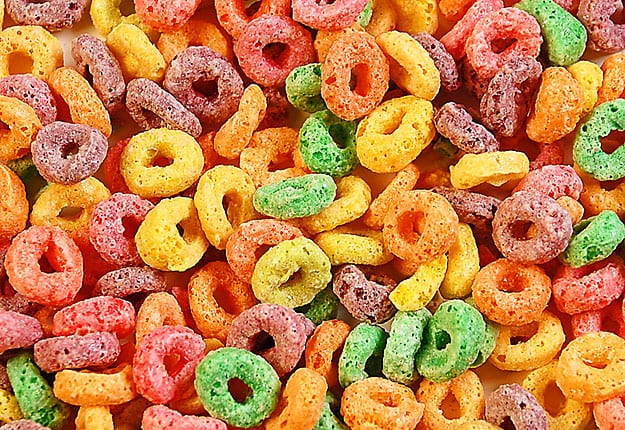In this busy modern age, time is a precious commodity that we never seem to have enough of – particularly the parents among us. It’s a sad reality that while we are becoming more sophisticated; we are also becoming more time-poor. We juggle many facets of everyday life, trying to do and be the best we can. It’s a philosophy that is never truer than when applied to our children and their wellbeing. As parents the health of our children is paramount and making the right choices when it comes to diet and sugar levels can be among our biggest challenges.
It’s no secret that high levels of sugar consumption are harmful for our children’s health. The list of illnesses that sugar contributes to is endless, including tooth decay, hyperactivity, obesity, diabetes and heart disease. As parents we aim to be as well-informed and socially aware as we can be on issues relating to our children’s health, but sometimes poor choices can occasionally be made – especially when sweets are unethically marketed as nutritional supplements.
What they don’t tell you
When products are marketed at children, it’s often what the advertisers fail to mention that you need to look out for. A certain brand of yoghurt may profess to contain calcium that’s good for your children’s bones, a breakfast cereal may be high in complex carbohydrates and a fruit drink may boast its vitamin C content.
What all the marketing around these products fails to mention, though, is that they also contain copious amounts of harmful sugar. This insidious inclusion of sugar has now been taken to a new level. Most parents would never expect nutritional supplements to contain anything unhealthy – yet that’s exactly what is happening.
Why is it possible for vitamin companies to market glorified jellies/lollies/sweets as therapeutic goods?
The Australian children’s vitamin supplement market has grown rapidly in the past two years, increasing by over $8 million (1), with the overall children’s vitamin market now being worth over $38 million a year. This increase has been predominantly driven by the introduction of lolly-type products. Australian law does not currently require that vitamin companies disclose the non-active ingredients in their products, which may account for over 90 per cent of the supplement.
1 AC Nielsen MAT April 2012
Leading brand of children’s vitamin supplements contains over 50 per cent sugar!
Malouf Pharmacies Group had a current leading brand of children’s vitamin supplements independently analysed, with results revealing the product range contained over 50 per cent sugar (Laboratory report available).
INDEPENDENT TEST RESULTS: PERCENTAGE OF SUGAR IN A TOP-SELLING KIDS’ VITAMINS RANGE
| Multivitamin + vegetables | 2.069 | 1.05 | 50.7% |
| Vitamin C | 1.956 | 1.06 | 54.2% |
| Omega-3 fish oil | 3.012 | 1.54 | 51.1% |
| Fussy eaters | 2.045 | 1.08 | 52.8% |
| Calcium + vitamin D | 2.073 | 0.77 | 37.1% |
What the experts say
Supermarkets and pharmacy shelves are now littered with these sugared lollies masquerading as nutritional supplements. While most retailers are putting commercial interests before the good of the community, Malouf Pharmacies Group in Queensland has decided to put ethics before profit.
Malouf Pharmacies Director Ian Malouf said, “We can’t expect parents to be experts in the reading of vitamin labels, so I encourage consumers to seek advice from a trained, knowledgeable pharmacy professional, dietician or doctor to ensure that the most suitable product, at the correct dose, is provided.
Leading Australian Dietician Melanie McGrice explains, “Some of the children’s nutritional supplements currently being sold in Australia are really just lollies masking as nutritional supplements. With one in four Australian children being overweight or obese, I find it disappointing that food and pharmaceutical companies are resorting to sugar to entice consumption”.
Nutritionist Dr Joanna McMillan agrees. “As a nutritionist/dietician and as a mother, I am horrified that lollies are being sold under the guise of nutritional supplements for children. Adding a small dose of vitamins and minerals to a sugary lolly does not make it good for our children. Nutritional supplements can be made appealing to children without the excessive use of added sugars.”
Seven tips to help ensure you are buying the right vitamins for your kids:
1. Always check the back of the pack. Look for the ‘Contains’ section. Don’t fall for marketing gimmicks that appear on the front of packs. For example, 100mg of vitamin C means that your child can take one tablet versus 30mg of vitamin C where he/she would have to take three.
2. Understand the difference between mg (milligram) versus mcg (microgram). Note that it takes 1000mcg to make 1mg; so 1mg is much better than 100mcg.
3. In fish oil look for the highest EPA (Eicosapentaenoic acid) /DHA (Docosahexaennoic acid) content.
4. Look for tooth-friendly logos on the back of packs. You will save monumentally on your child’s dental health and your child will thank you in the long run.
5. Look for the words ‘contains sugar’ on the back of pack and avoid. You can also usually tell if tablets are visibly coated with sugar.
6. Also look for and avoid other allergens such as yeast, gluten, dairy products, artificial colours, artificial flavours or preservatives.
7. Vitamin C degrades rapidly if it’s exposed to light. Clear bottles will always contain less vitamin C, as the glass exposes the vitamin C to light. Make sure you look for opaque bottles.




















3:03 pm
11:00 am
7:49 am
1:30 am
5:32 pm
10:54 pm
12:36 am
8:53 pm
6:54 pm
9:09 pm
6:24 pm
4:10 pm
7:02 pm
2:34 pm
3:19 pm
9:47 pm
11:05 pm
11:50 am
9:18 am
2:45 pm
- 1
- 2
- …
- 7
- »
Post a commentTo post a review/comment please join us or login so we can allocate your points.